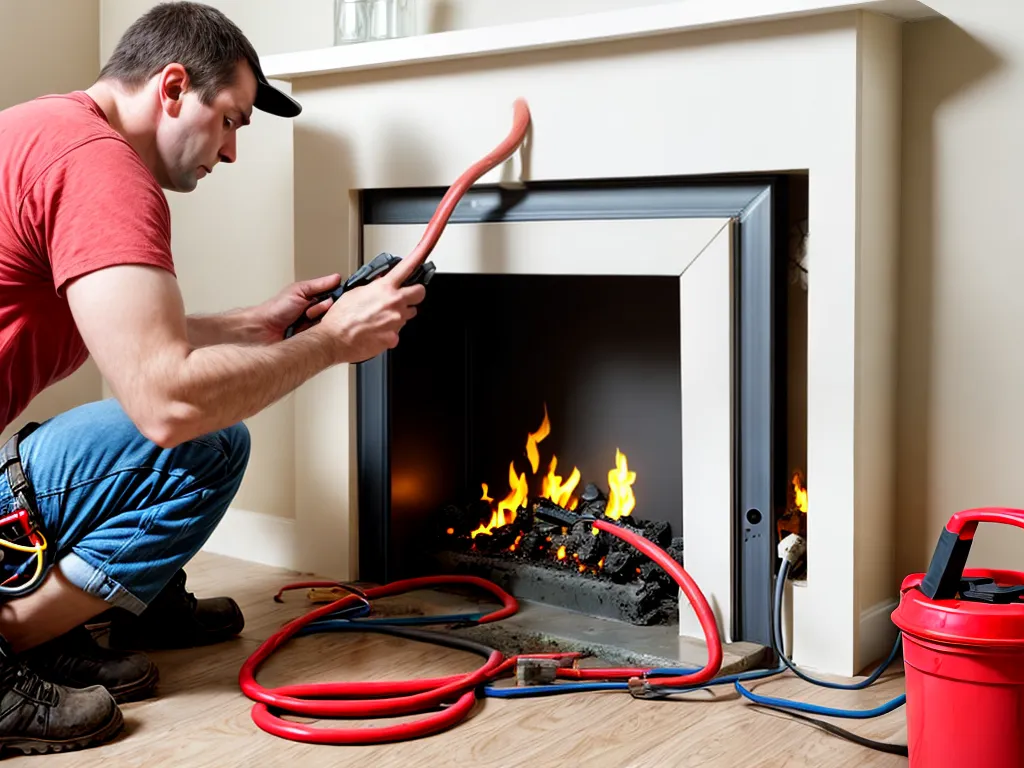
Electrical fires can happen at any time and catch homeowners off guard. As terrifying as it is to deal with a fire in your home, there are things you can do to troubleshoot and prevent future fires. This guide will walk you through how to identify causes, protect your home, and create an action plan in case the worst happens.
Inspect Your Electrical System
The first step is to thoroughly inspect your home's electrical system to uncover any issues that could cause a fire.
Check the Electrical Panel
The main circuit breaker and fuse box is the central hub of your home's electrical system. Here's what to look out for:
-
Overloaded circuits - Too many devices on one circuit can lead to overheating of the wires. Check that high-power appliances like AC units and dryers have dedicated circuits.
-
Faulty breakers - Breakers that trip or need to be reset frequently may be defective. They should be replaced.
-
Corrosion - Signs of rust, moisture, or corrosion on the panel or wires indicates potential trouble. Call an electrician immediately.
-
Double-tapping - This refers to two wires sharing a single breaker terminal. It's dangerous and against code.
Inspect Outlets and Switches
Outlets and switches are other common sources of electrical fires. When inspecting them:
-
Check for loose or damaged connections. This can lead to arcing and sparks.
-
Use an outlet tester to check for wiring issues like reversed polarity or improper grounding.
-
Note any outlets or switches that are warm to the touch, as this indicates potential overheating.
-
Watch for flickering lights or lights dimming when appliances turn on, which signal a wiring problem.
Check Cords and Plugs
Faulty cords and plugs cause around 4,500 home fires per year according to the U.S. Fire Administration. Look out for:
-
Frayed, cracked, or damaged cords. Replace them.
-
Loose plugs that spark when plugged in.
-
Extension cords that are overloaded or undersized. Use larger gauge cords for high-power devices.
-
Outlet expanders that are daisy-chained together. This overloads the circuit.
Address Fire Hazards
Once you've inspected your electrical system, take steps to correct any hazards uncovered:
Upgrade Outdated Wiring
If your home still has old knob-and-tube wiring, it's critical to upgrade it to modern NM electrical cable. This older wiring is extremely fire-prone.
Add AFCIs
Arc-fault circuit interrupters (AFCIs) are smart circuit breakers that shut off power when dangerous arcing occurs. Have an electrician install them for added protection against fires. Focus on bedroom and kitchen circuits first.
Practice Electrical Safety
Practice habits like:
-
Not overloading outlets with multiple devices
-
Keeping appliances away from water
-
Turning off appliances when not in use
-
Not daisy chaining extension cords or power strips
-
Having heavy appliances like dryers properly grounded
Create a Fire Escape Plan
Despite best efforts, electrical fires can still occur. That's why it's crucial to have an escape plan.
Install Smoke Detectors
Smoke detectors are your first line of defense, alerting you to a fire as soon as it starts. Install them on every level of the home and inside each bedroom. Test them monthly and replace batteries yearly.
Have Fire Extinguishers Ready
Keep ABC type fire extinguishers in easily accessible areas, like the kitchen, bedrooms, and hallways. Make sure everyone knows how to use them if needed. Focus on extinguishing small fires - don't try to take on large flames.
Know Your Escape Routes
Map out at least two ways to exit every room in an emergency and practice them with your family. Choose a safe outdoor meeting spot. Know where to go for help if you can't extinguish a fire yourself.
Assistance for Vulnerable People
If you have young children, elderly residents, or people with limited mobility in your home, assign someone to assist them in an emergency evacuation. Make any necessary accommodations for their safe exit.
Conclusion
Electrical fires are a real threat, but you have the power to protect your home. By regularly inspecting your electrical system, addressing hazards, and preparing escape plans, you can troubleshoot issues before they turn into tragedy. Put these tips into action for added peace of mind. With the right precautions, you can keep your home and family safe.